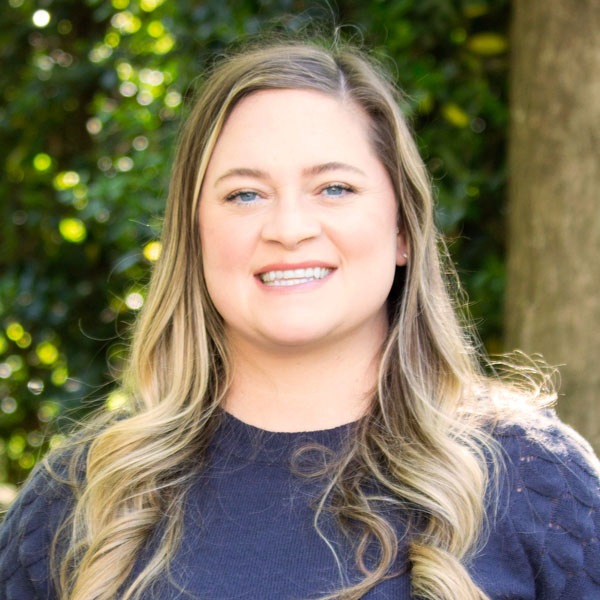Staff Highlight: Abby Dickinson, LMSW

Abby Dickinson, LMSW, is a primary therapist with the Skyland Trail adolescent program. Abby has several years of experience providing therapeutic services in residential treatment programs. She has experience in family, couples, and individual therapy utilizing DBT, CBT, and family systems approaches. Abby received a master’s degree in social work from Valdosta State University and a bachelor’s degree in social work from The University of Georgia.
What inspired you to enter the mental health field?
I was playing the role of confidant, supporter, cheerleader, advice giver, empathizer, and space maker long before I considered becoming a therapist. My parents always say that I was a therapist since birth. Listening and creating safe spaces for people has always been something that came naturally to me and felt like my purpose. I myself did not have safe spaces like that growing up due to existing within a system that did not believe in mental health care. It never crossed my mind to enter into mental health care because I never knew anyone who had benefited from these services.
In college, I truly had no idea what I wanted to do with my life and my career, so my advisor suggested I take a class that helps undecided students explore careers and strengths in order to identify an area of study. I remember getting my results and thinking, “Of course! Why didn’t I think of that?” when I saw that every ideal fit for me included helping and supporting others (i.e. social work, therapy, sociology, childhood development, etc.). From that point on, I knew I would eventually be a therapist of some sort.
What is your favorite part of working at Skyland Trail?
My clients. The kids that I get to work with are extraordinary humans, and I learn so much from them every day.
From your experience working with adolescent clients, are there any common themes you see clients struggling with?
Every kid I work with seems to struggle with self-esteem and challenging family systems. Most kids are simply looking for the connection, validation, and nonjudgmental support that we all crave. I also notice an overwhelming theme of avoidance of pain. I believe that our societal culture has convinced so many people that life should be without suffering and that pain should be avoided at all costs. Of course, most people do not enjoy pain, and I’m not suggesting we should. However, pain is a fact of life that we must accept and learn to cope with productively.
How can parents, family, and friends of adolescent clients play an impactful role in someone’s recovery?
Listen nonjudgmentally, communicate effectively, reassure, encourage, validate, model effective skill implementation, take responsibility, be consistent and dependable, and apply behavioral shaping techniques appropriately.
What do you like most about working with adolescent clients?
They are so creative and talented! I love seeing their art and their writing and hearing their music. Most of all, I love witnessing what this generation is doing for our culture in terms of acceptance, tolerance, open-mindedness, and celebrating differences. I love learning from them and watching their own capability to heal themselves. They are strong, resilient, determined, and resourceful. I feel inspired by them daily.
Who or what inspires you?
Nature and animals, adolescents, engaged and supportive parents/families, and the queer and LGBTQ+ community.
What’s one way you practice self-care?
I go to therapy regularly and spend a lot of time with my perfect doggo, Rue.
What’s your favorite cheerleading statement or mantra?
“Progress, not perfection.”
